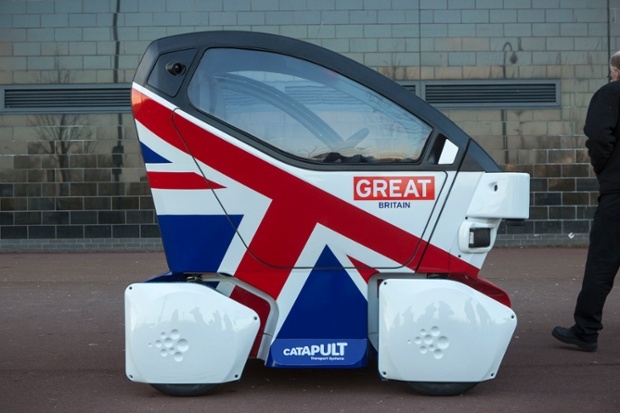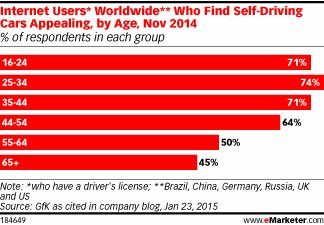by Benson Agoha | Management | @bensonagoha
 Google's leadership is not much different either. If there is one thing Google's leaders don’t have in their
dictionary, it is `satisfaction’. For a Company who’s mission statement on inception simply read “to
organize the world's information and make it universally accessible and useful,” Google has gone from fulfilling that mission to diversifying into various complex
areas previously unimagined. These include data organisation, archive and recovery; automobile, robotics, health, publishing, social media,
telecommunications. In fact there are so many areas that are hitherto unheard of. Some of these were achieved through new company formations, as
well Mergers and Acquisitions. And Google is most certainly not satisfied yet.
Google's leadership is not much different either. If there is one thing Google's leaders don’t have in their
dictionary, it is `satisfaction’. For a Company who’s mission statement on inception simply read “to
organize the world's information and make it universally accessible and useful,” Google has gone from fulfilling that mission to diversifying into various complex
areas previously unimagined. These include data organisation, archive and recovery; automobile, robotics, health, publishing, social media,
telecommunications. In fact there are so many areas that are hitherto unheard of. Some of these were achieved through new company formations, as
well Mergers and Acquisitions. And Google is most certainly not satisfied yet.
Kevin Spacey, recently said that `content’ is the worst kind of word
and that satisfied and happy people are `boring’. I think he is right.
Don’t ever be satisfied; It is the bane of leadership!
Should Leadership and Subordinates be satisfied? The question of Satisfaction as an important attribute of leadership, remain debatable. Whereas employee satisfaction has been deeply explored in order to keep them motivated, leadership satisfaction isn't.
In the majority of cases, leaders who aren't easily satisfied aren't very well loved and appreciated by their subordinates, yet it is that attribute that helps sustain the organisation and keep the employees on their jobs. The main question should be, whether leadership should even
be satisfied at all?
Looking at large corporations,
such as Apple and Google that have achieved huge success, the answer should be `no’ - their leaders are never satisfied. The reason is that the moment you are satisfied, you begin to stagnate your organisation. This is why some companies growth reverses very quickly, leading to sudden death.
Satisfaction is an end state – a level of realization that is `terminal`. For example, if you feel satisfied with a letter, you don't border reviewing it. However, if you conclude that you could only give it 90%, you would probably want to find out what else there is to add, to make it a hundred percent.
Satisfaction is an end state – a level of realization that is `terminal`. For example, if you feel satisfied with a letter, you don't border reviewing it. However, if you conclude that you could only give it 90%, you would probably want to find out what else there is to add, to make it a hundred percent.
There is no organisation
without people. Therefore, in
examining the impact of satisfaction on organisations, one must look at its
impact on the `individual leader'. It is the insatiable drive in the leader
that enables him to keep setting goals that keep the organisational members
aspiring. Without that
`insatiability’ on the leader, the organisation begins to stagnate, dwindle and become terminally ill – it will be a matter of time before it eventually dies.
When
news emerged in January, 2015 that Apple
had achieved $700bn valuation for the first time in history, some would have thought the next word expected from Tim Cooke, would have been about sustaining the achievements of the iPhone 6 range. Rather than do that, the CEO commissioned a research group in a secret location to work on their iCar vision - the new automobile industry in which one can consider Apple a late comer.
Only last December, Apple rolled out its own wireless money transfer services - effectively harnessing the technologies it packed into its newest iPhone 6 range.
Only last December, Apple rolled out its own wireless money transfer services - effectively harnessing the technologies it packed into its newest iPhone 6 range.
 Google's leadership is not much different either. If there is one thing Google's leaders don’t have in their
dictionary, it is `satisfaction’. For a Company who’s mission statement on inception simply read “to
organize the world's information and make it universally accessible and useful,” Google has gone from fulfilling that mission to diversifying into various complex
areas previously unimagined. These include data organisation, archive and recovery; automobile, robotics, health, publishing, social media,
telecommunications. In fact there are so many areas that are hitherto unheard of. Some of these were achieved through new company formations, as
well Mergers and Acquisitions. And Google is most certainly not satisfied yet.
Google's leadership is not much different either. If there is one thing Google's leaders don’t have in their
dictionary, it is `satisfaction’. For a Company who’s mission statement on inception simply read “to
organize the world's information and make it universally accessible and useful,” Google has gone from fulfilling that mission to diversifying into various complex
areas previously unimagined. These include data organisation, archive and recovery; automobile, robotics, health, publishing, social media,
telecommunications. In fact there are so many areas that are hitherto unheard of. Some of these were achieved through new company formations, as
well Mergers and Acquisitions. And Google is most certainly not satisfied yet.
Satisfaction is therefore, the
bane of leadership - and no right thinking leader embraces it. The moment you are
`satisfied’, it’s fair to say you have lost the plot. It is this attribute in leadership that gives
the organisation that `going concern’ status that accountants use to different a
specific project from one that is expected to run continuously.
If you are running a
company and you are not aiming to expand, you aren't really a good leader. And expansion maybe through new product introductions,
introduction of existing products into new markets, introduction of new
marketing strategies to increase existing market share, or expansion - by means of mergers and acquisitions, to increase both the size and or product portfolio
of the company.
If `controlled dissatisfaction’
is good for the continual survival of a company, it can syllogistically represent
the secret to longevity. One can argue that
individuals who continually set targets, towards which they aspire, actually live
longer. The reason is that they are the ones who have reason to look forward to
living. In this case, an individual is encouraged to embrace controlled-dissatisfaction
because it represents an innate trigger that alerts his soul and senses to the
reason to wake up. It tells
you that you still have unfinished business on earth and that its time to start
making further efforts towards their realization.
The more humane ones objective, the better it will be for him/her. This is because positive thought
forms cluster around the individual and support, as well as justify his continual existence on
earth.
Perhaps, it is
important, at this stage, to point out that there is a difference between `greed’ and `controlled dis-satisfaction’.
Whereas `greed’ is an uncontrollable and insatiable voracity that drags with it a long string of issues, including offences, deprivation and theft, `controlled-dissatisfaction’ is an ambitious attitude that recognizes the right of others to co-exist and co-share from a mutual pool, in an acceptable, self-respectable display.
Whereas `greed’ is an uncontrollable and insatiable voracity that drags with it a long string of issues, including offences, deprivation and theft, `controlled-dissatisfaction’ is an ambitious attitude that recognizes the right of others to co-exist and co-share from a mutual pool, in an acceptable, self-respectable display.
Don’t ever be satisfied; It is the bane of leadership!





